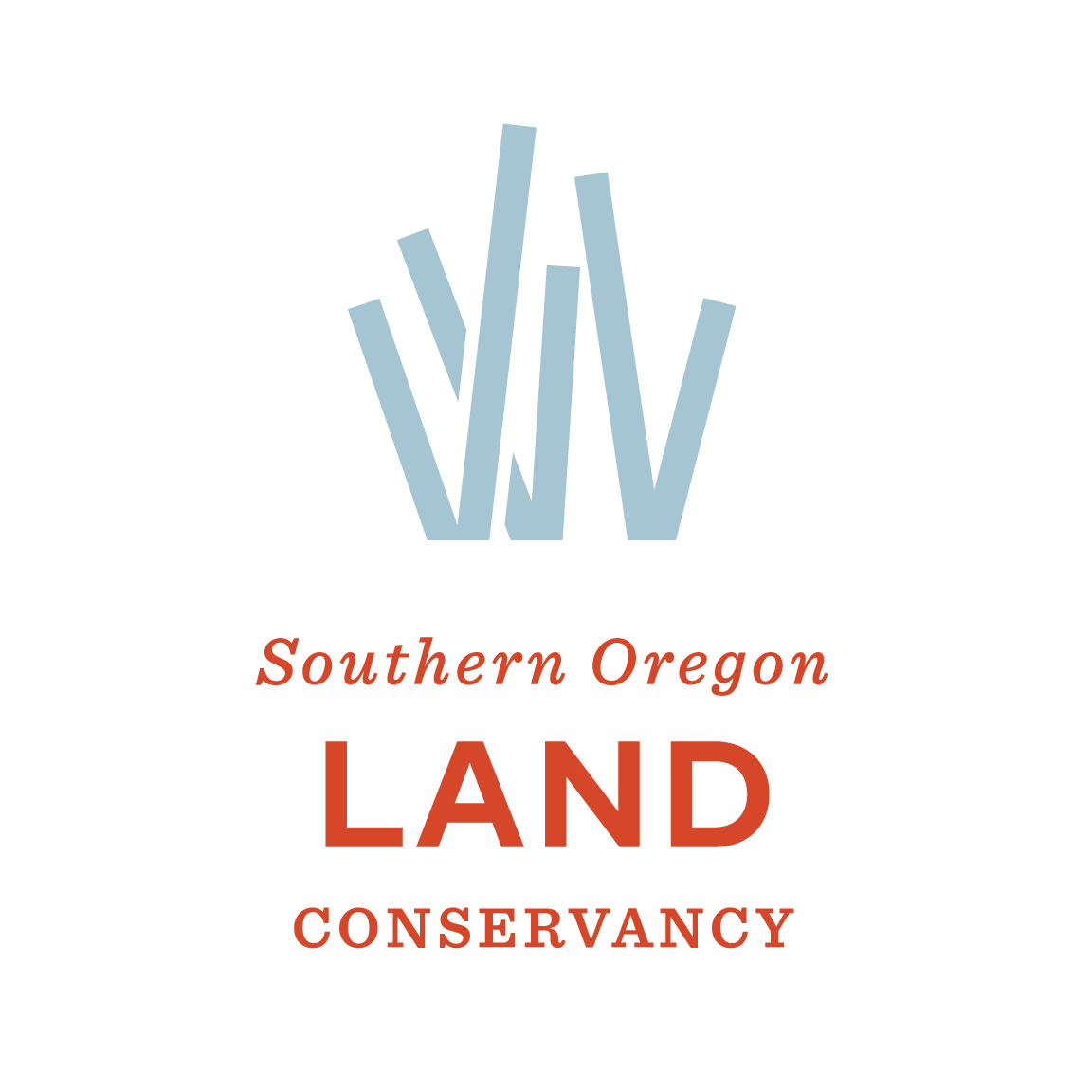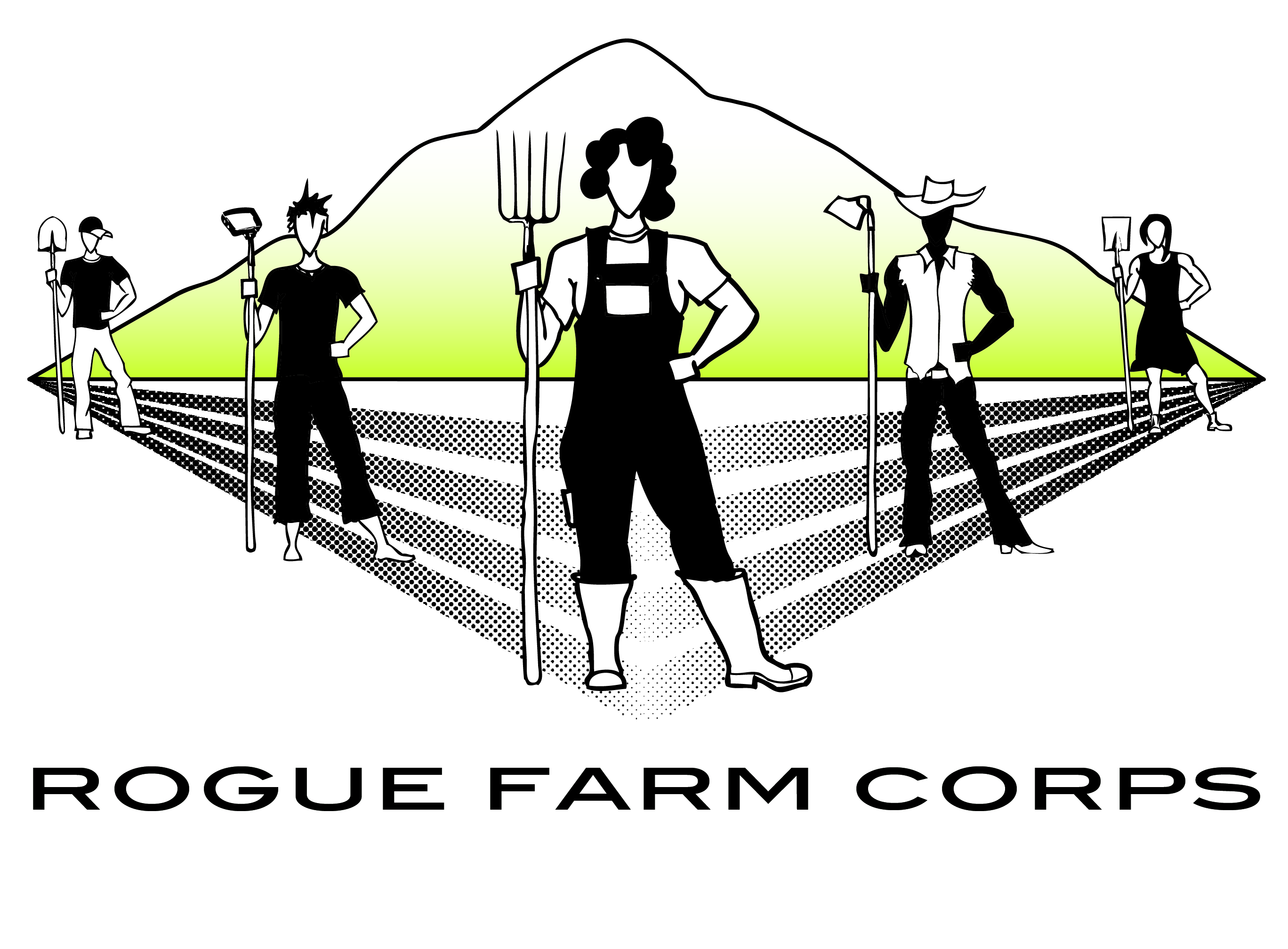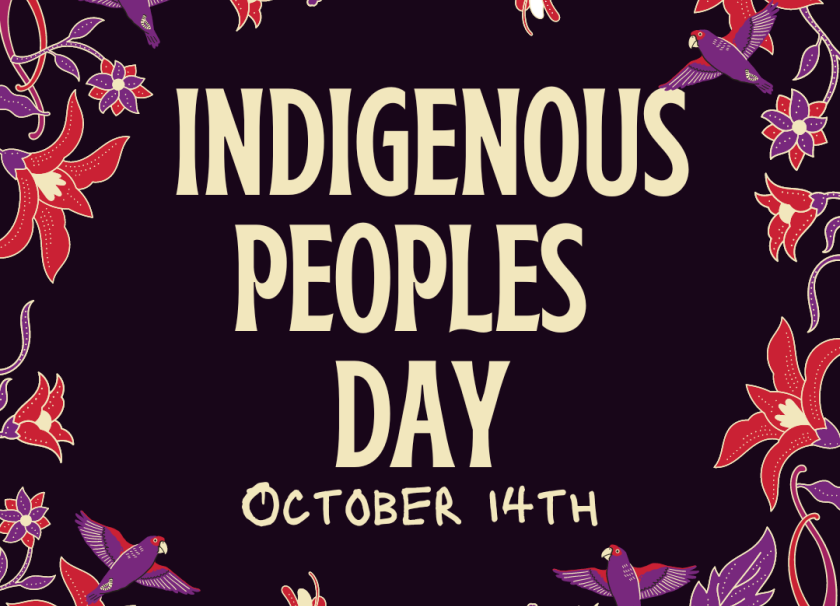
Indigenous Peoples’ Day: Honoring Native Heritage
Indigenous Peoples' Day is a holiday that celebrates and honors Native American peoples and commemorates their histories and cultures. It's observed on the second Monday in October, coinciding with the federal holiday of Columbus Day in the United States.
The idea for Indigenous Peoples' Day was born in 1977 at a United Nations conference on discrimination against indigenous populations in the Americas. It was first adopted as a holiday in Berkeley, California in 1992, on the 500th anniversary of Columbus' arrival in the Americas.
Many Native Americans and allies have long criticized the celebration of Columbus Day, arguing that it glorifies an exploitative and violent history of colonization. Indigenous Peoples' Day offers a way to reframe the narrative, focusing instead on the rich cultures and contributions of Native peoples.
The holiday encourages reflection on the complex history of the Americas and promotes recognition of indigenous peoples' resilience, wisdom, and ongoing contributions to our shared communities. It's a day for education, celebration, and advocacy for indigenous rights and cultural preservation.
In recent years, a growing number of cities, states, and institutions have chosen to recognize Indigenous Peoples' Day. This shift represents a broader movement towards acknowledging historical injustices and fostering respect for Native American perspectives and experiences.
Indigenous Tribes in the Ashland, Oregon Area
Our area has a rich indigenous history. The primary Native American groups who have traditionally inhabited this region include:
- The Takelma: Also known as the Dagelma, they were the primary inhabitants of the Rogue Valley. The Takelma people lived along the Rogue River and its tributaries, with a culture deeply connected to the local ecology.
- The Shasta: While primarily associated with northern California, the Shasta peoples' territory extended into southern Oregon, including parts of the Rogue Valley.
- The Latgawa: A subgroup of the Takelma, the Latgawa lived in the uplands of the Rogue Valley and along the Upper Rogue River.
- The Cow Creek Band of Umpqua Tribe: While primarily associated with areas north of Ashland, their ancestral territory extended into parts of the Rogue Valley.
Today, many descendants of these tribes are part of the Confederated Tribes of Siletz Indians and the Confederated Tribes of Grand Ronde, which include multiple bands and tribes from western Oregon.
As we observe Indigenous Peoples' Day, we're invited to learn more about these original inhabitants of the lands we now call home and to consider how we can contribute to a more inclusive and equitable society. It's an opportunity to acknowledge the ongoing presence and contributions of Native peoples in our community and to honor their enduring connection to this land.
More Co-op News

May Change for Good Recipient: Rogue Valley Farm to School
Open House Hiring Event
The Ashland Food Co-op is excited to provide employees with a fun, professional workplace with potential for growth and advancement. We see every day as an opportunity to better our community, our planet, and ourselves! Eligible employees will receive a 15% employee discount on all store purchases, affordable healthcare, 3.5 weeks of paid time off in your first year for vacation and sick days, matching 401K plan after 1 year, productivity and profit sharing bonus opportunities, free organic produce every day... and so much more!

Standing with Democracy
Our Community Food Co-op has joined, along with other co-ops across the nation, to donate to a Disaster Recovery Fund organized by National Co+op Grocers (NCG) Cooperation, Cooperative Development Foundation (CDF) and National Co-op Business Association of the United States (NCBA CLUSA) to Co-op Ukraine to support cooperatives impacted by the war in Ukraine.


Thank you for 50 years.
Celebrate our anniversary with us!
June 3rd, 2022 at the Ashland Food Co-op:
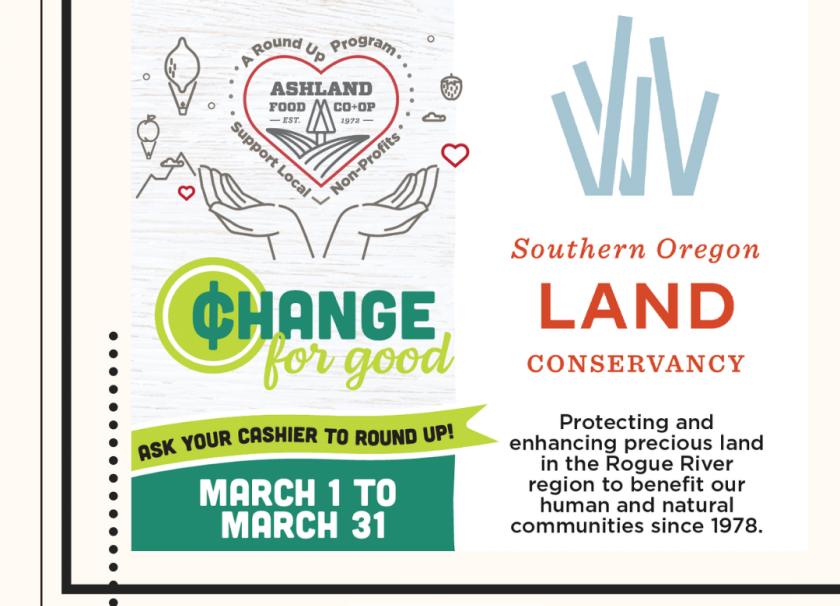
March Change for Good Partner: Southern Oregon Land Conservancy
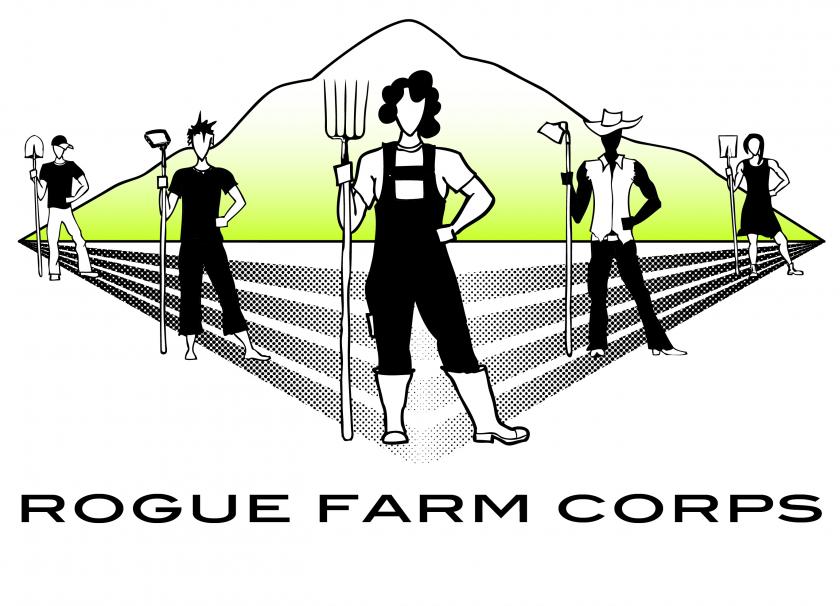
February Change for Good Partner: Rogue Farm Corps

January Change for Good Partner: Rogue Climate
January's Change for Good Partner is
local nonprofit Rogue Climate
Rogue Climate was founded in 2013 in the Rogue Valley of Southern Oregon.

August Change for Good Partner: Community Works
August's Change for Good Partner is

November Change for Good Partner: Southern Oregon Climate Action Now
November Change for Good Partner: Southern Oregon Climate Action Now
November's Change for Good Partner is

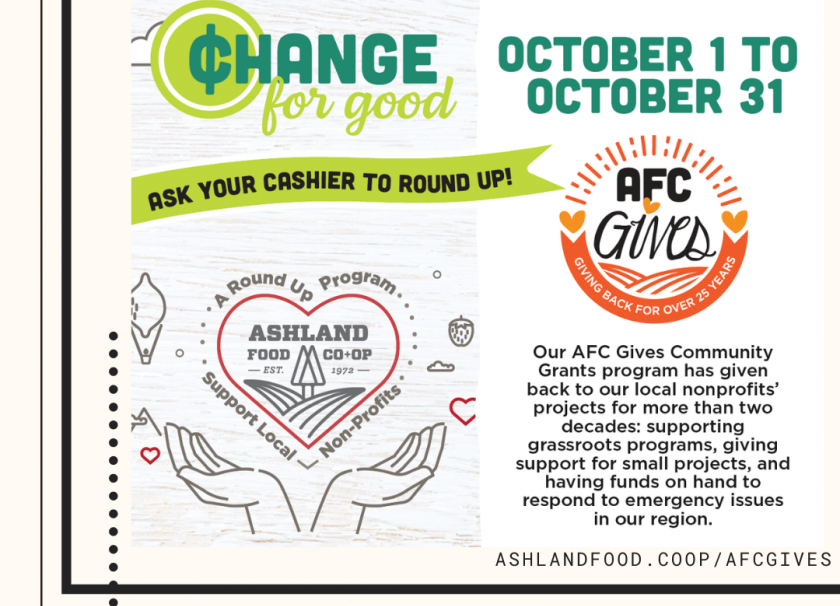
October Change for Good Partner: AFC Gives Community Fund
October's Change for Good Partner is
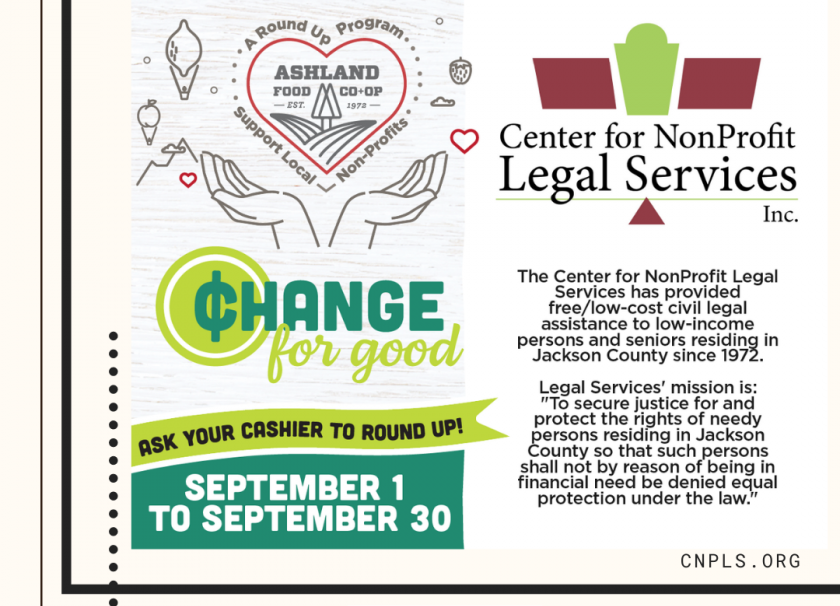
September Change for Good Partner: Center for NonProfit Legal Services
September's Change for Good Partner is
Center for NonProfit Legal Services
The Center for NonProfit Legal Services has provided free/low-cost civil legal assistance to low-income persons and seniors residing in Jackson County since 1972.

.png)

.jpg)
